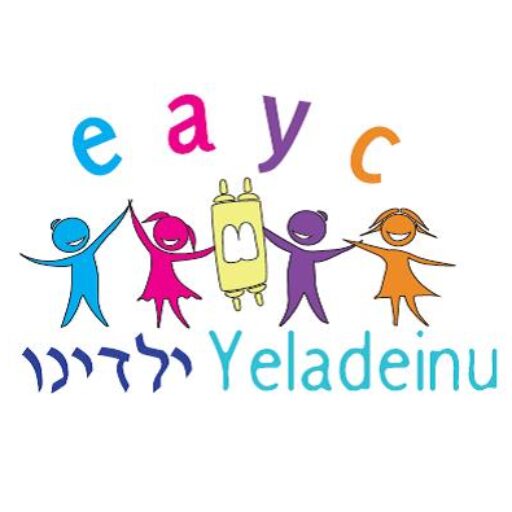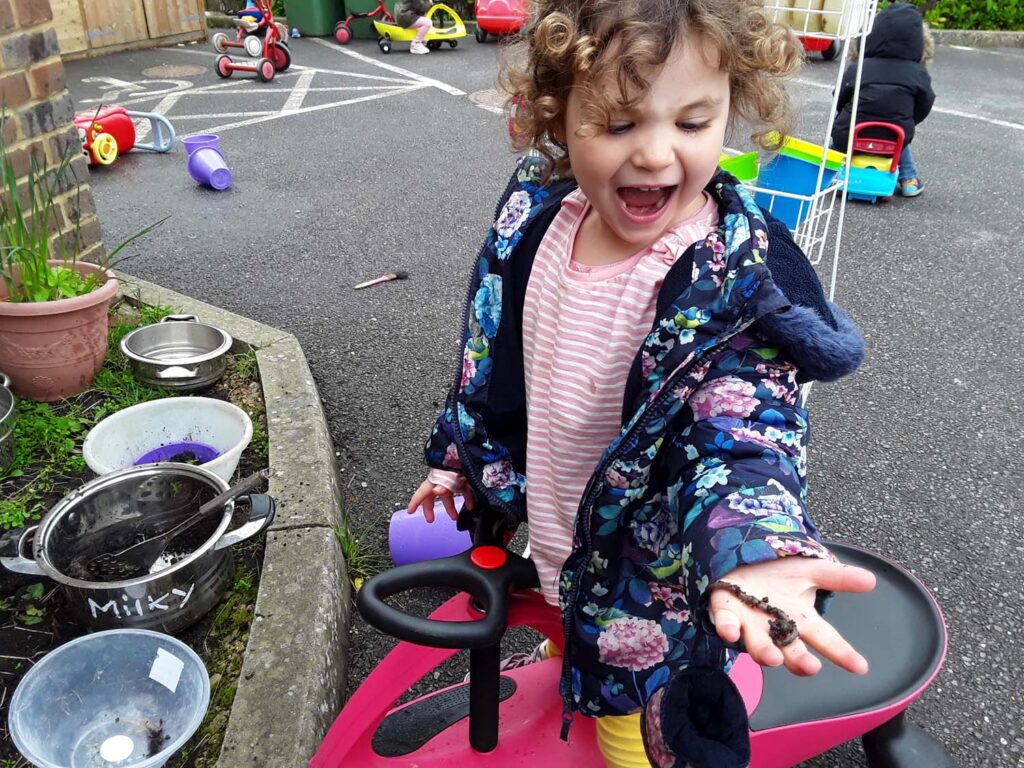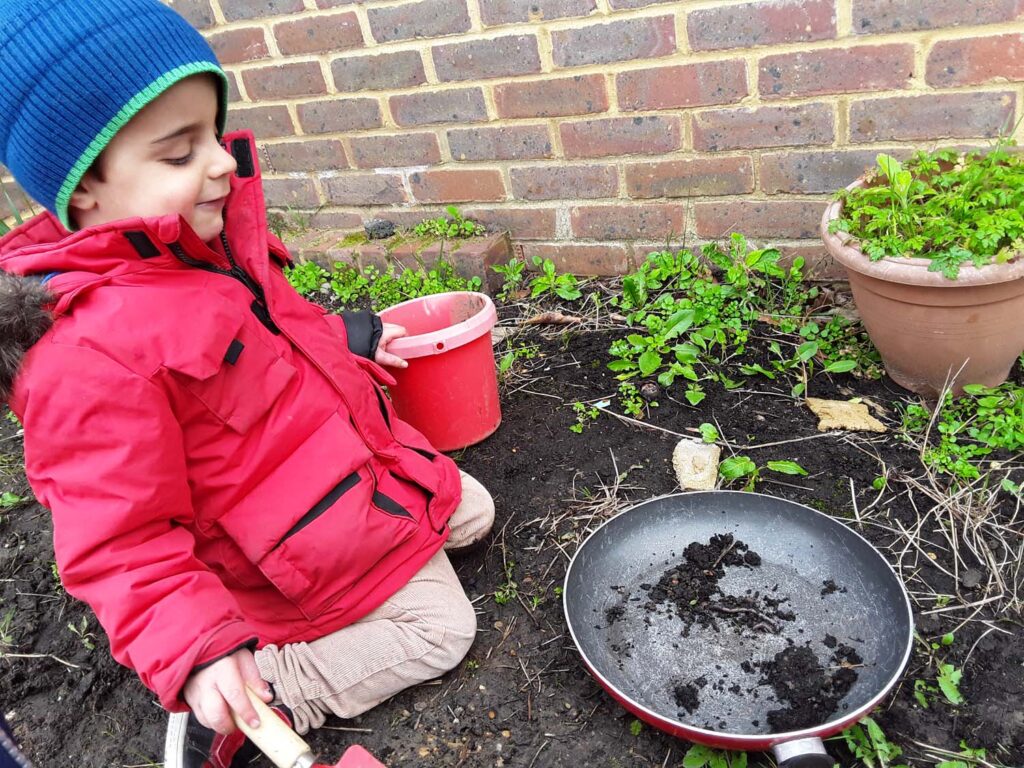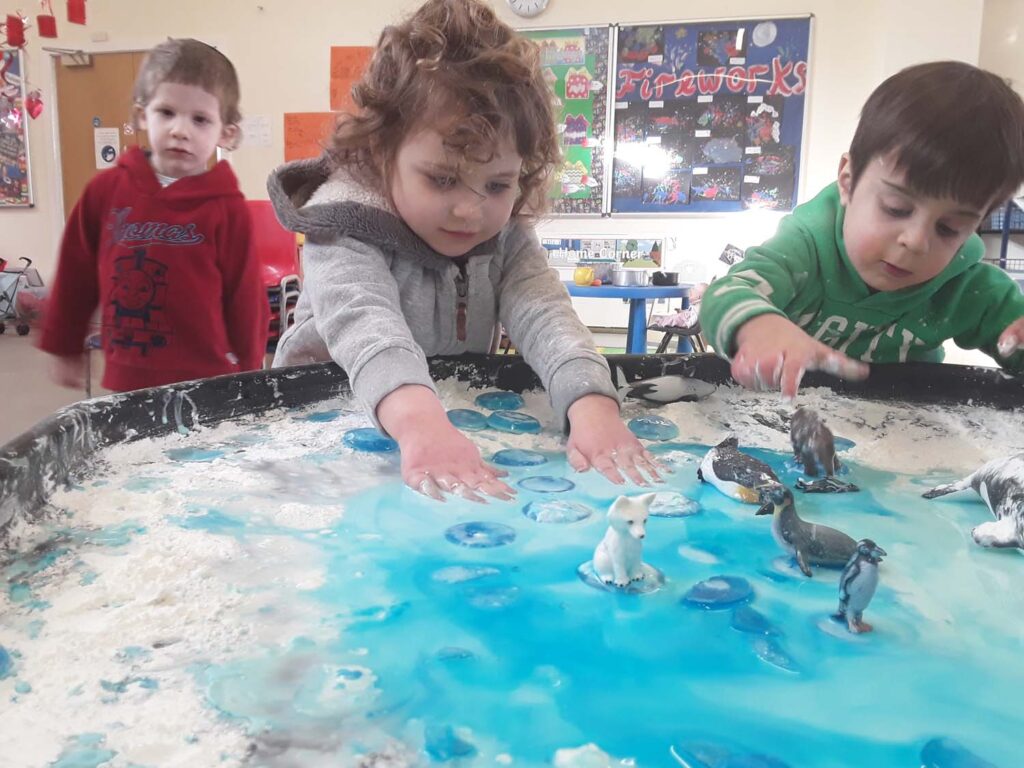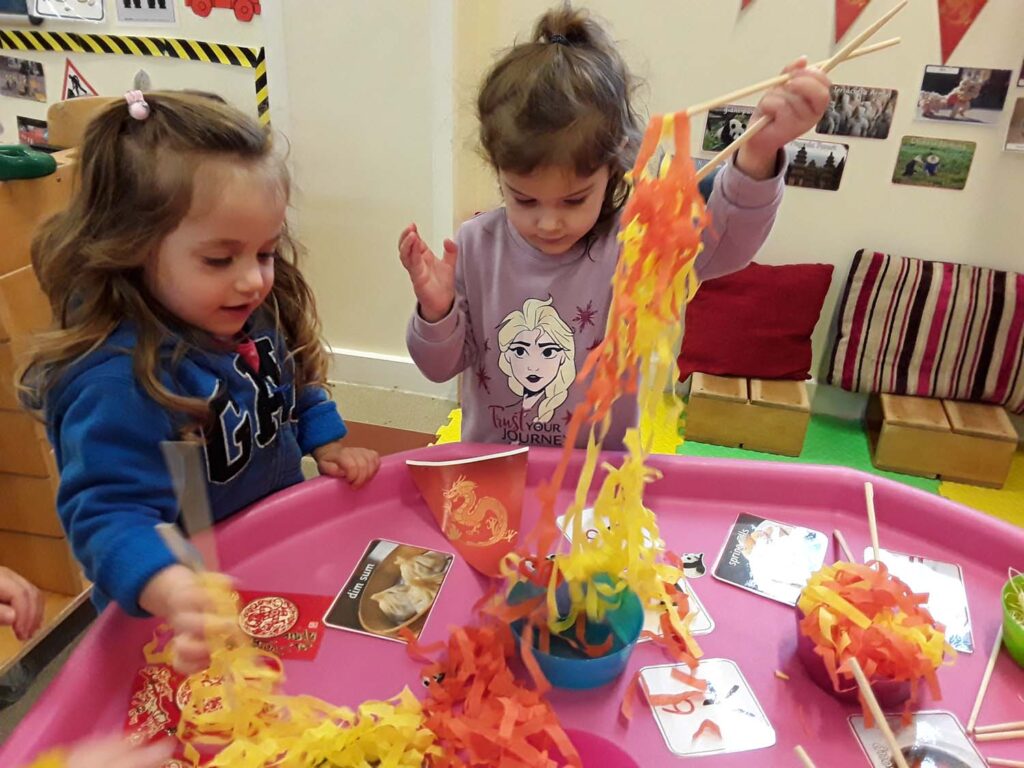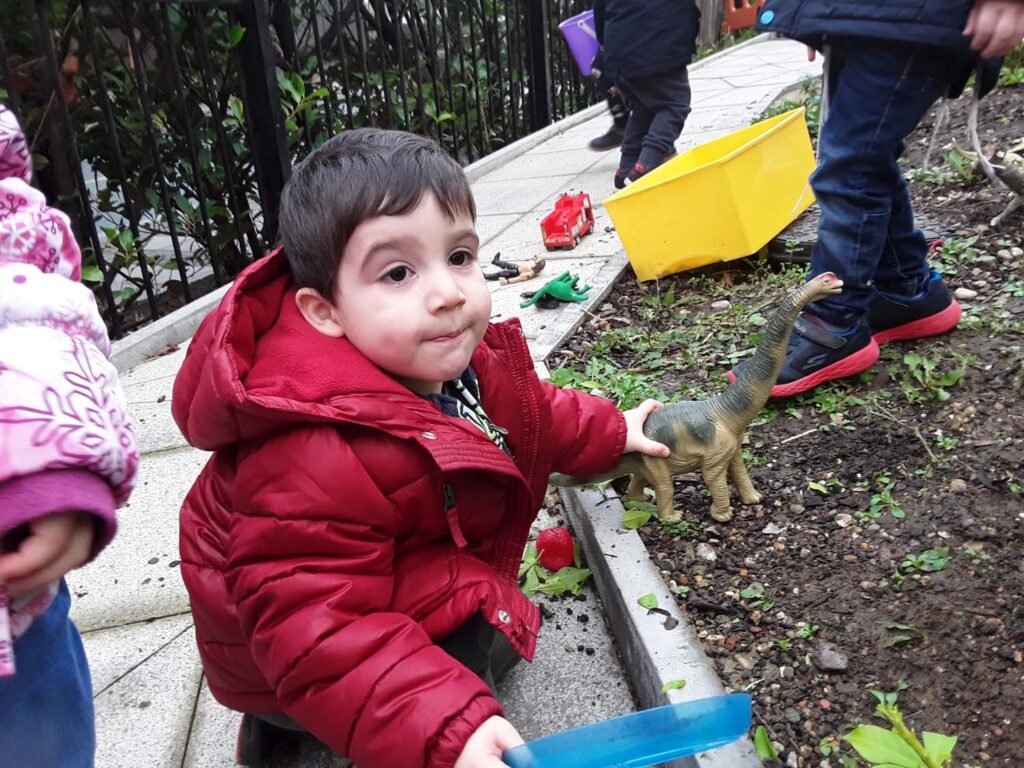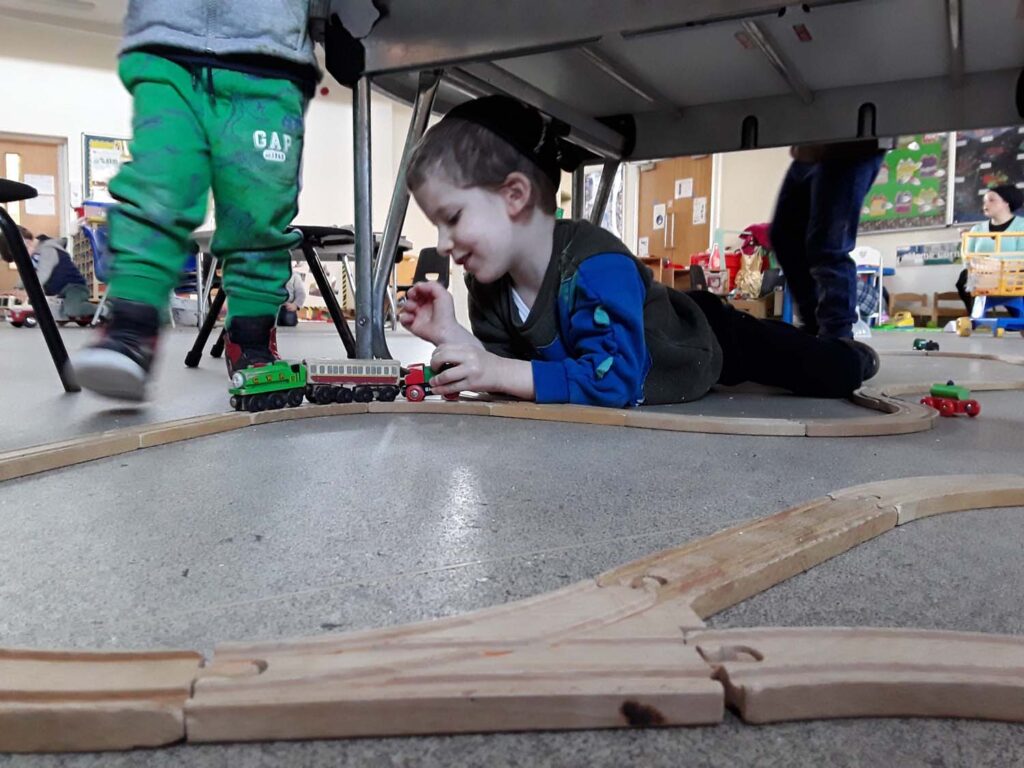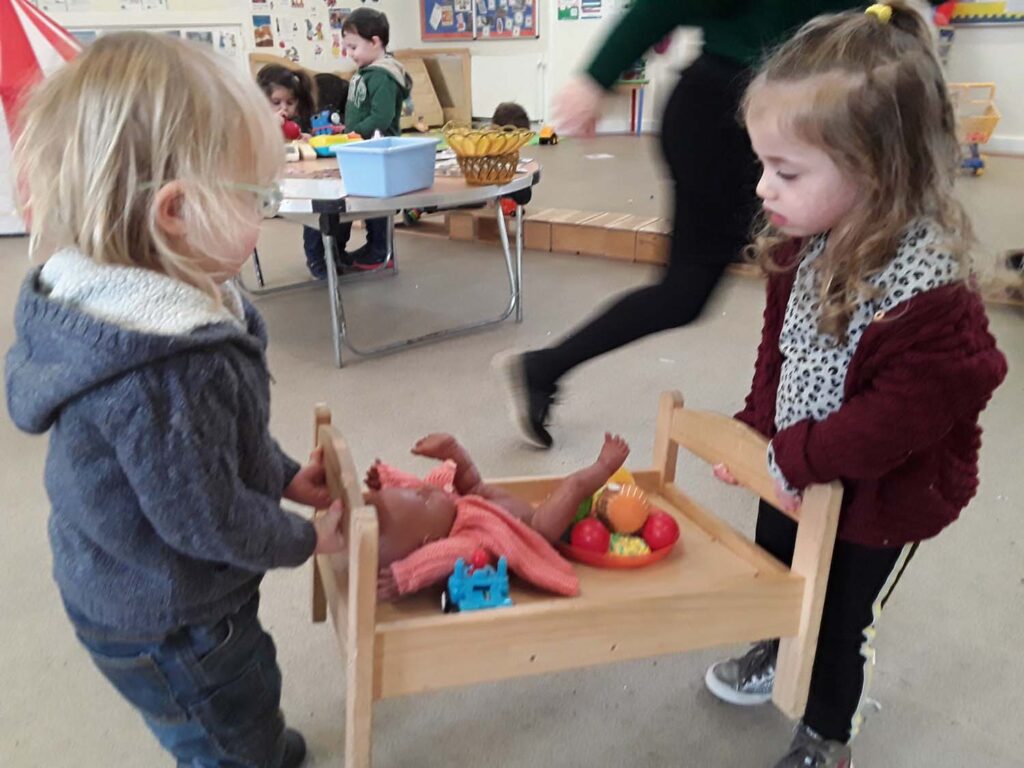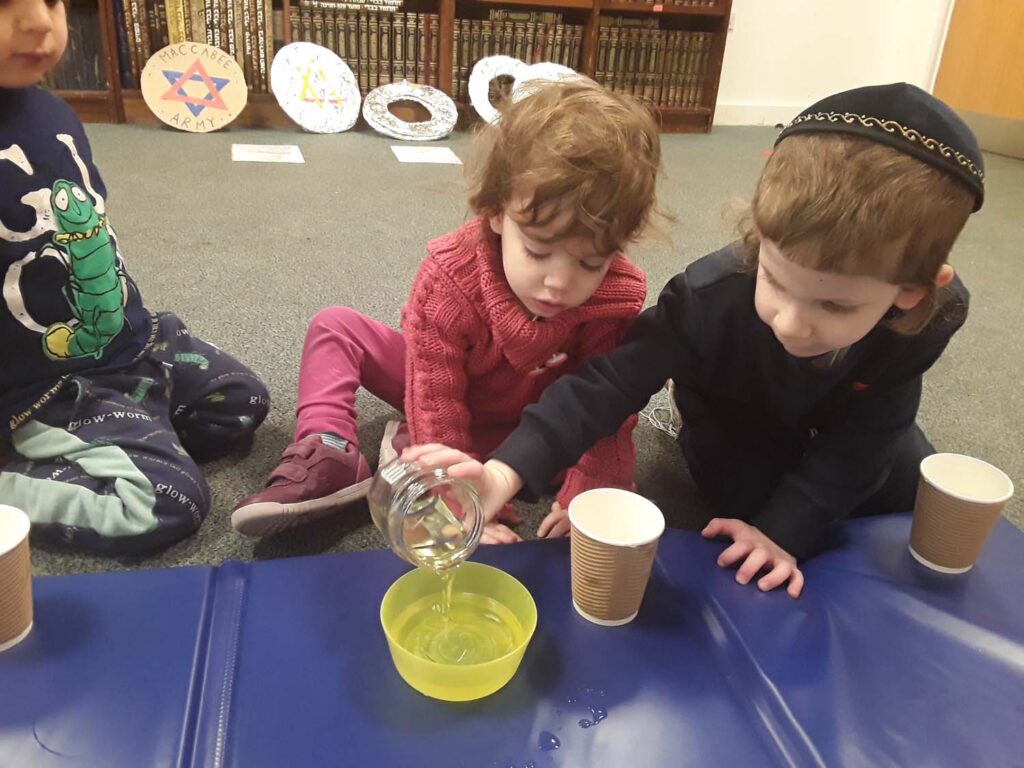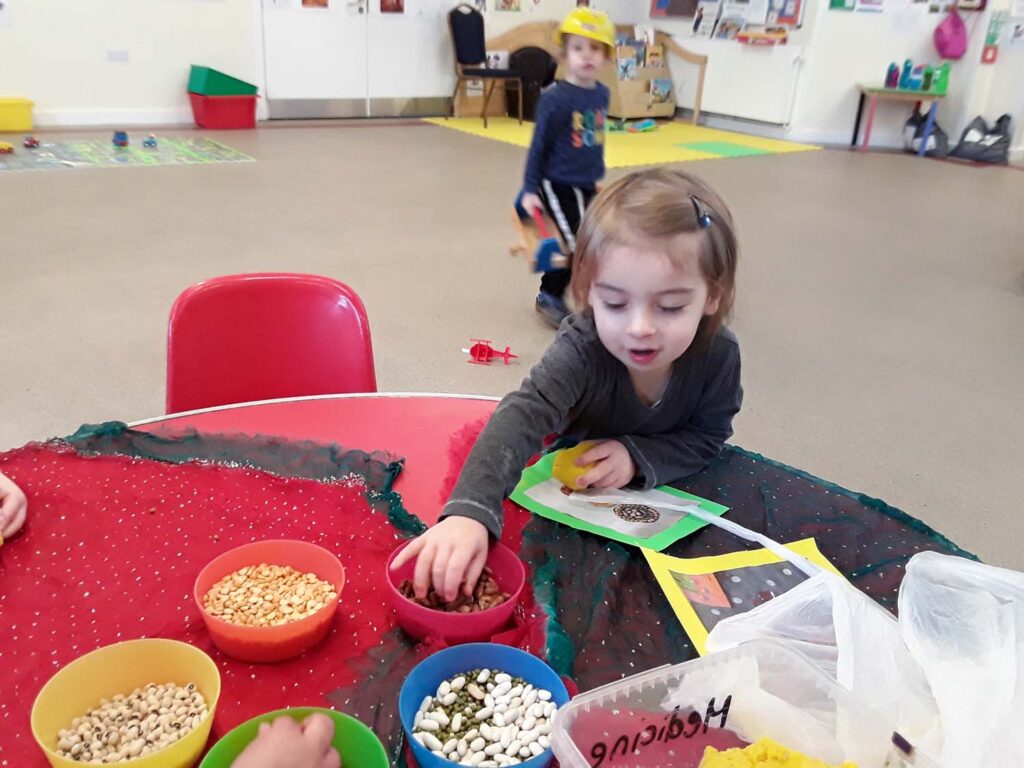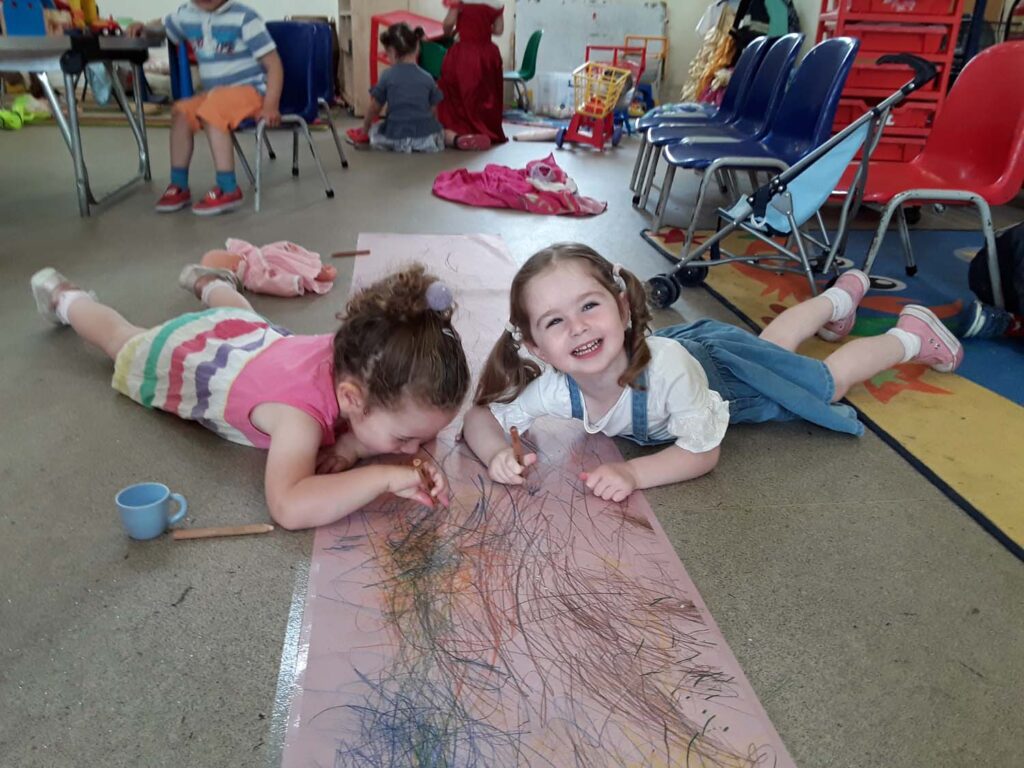EYFS AT
EAYC YELADEINU NURSERY
How EAYC Yeladeinu Nursery uses the Early Years Foundation Stage to support the development of its children
EAYC Yeladeinu Nursery is dedicated to providing a healthy, happy, and safe learning environment for all our children. We follow the EYFS (Early Years Foundation Stage) curriculum, which continues to the end of the Reception year. The Curriculum provides the foundations for future learning and aims to develop children’s skills, knowledge and understanding.
The curriculum is split into two areas: Prime Areas and Specific Areas.
PRIME AREAS
- Personal, Social, and Emotional Development (PSE):
- This area is critical for creating a successful foundation in all areas of learning.
- Children are encouraged to develop a positive approach to their learning and are provided with planned opportunities to express themselves, develop their self confidence and self-esteem, and to practice and improve their self-help skills.
- Children learn how to form positive relationships, understand the difference between right and wrong, and develop their sense of belonging and community.
- Physical development:
- This area focuses on improving the skills of co-ordination, control, manipulation and movement. We provide daily opportunities for the children to enhance their fine motor skills through activities such as threading, mark making, cutting, sticking and pouring.
- Children will also be provided with opportunities to explore how their body works and how to keep fit and healthy through initiatives such as healthy eating week. We also provide exercise sessions such as Stretch and Grow – an adult led, fun and engaging exercise class.
- Playing outside on climbing frames, slides and bicycles is an important part of supporting physical development – the children have at least an hour of outdoor time every single day.
- Communication and Language: Our children are provided with multiple opportunities to practice their speaking and listening skills as they learn to communicate in different situations and for different purposes.
SPECIFIC AREAS
Our main classroom is set up in sections to support each of the following specific learning areas. A practitioner is always stationed in each of these areas to support both child and adult led learning and play. We also have a downstairs classroom which aims to provide more focused, one to one based learning in the Prime and Specific learning areas. It also helps practitioners gain insight into which areas a child may need additional help or support. Every child has a turn downstairs once or twice a week in a group of three or four. The groups are carefully thought out to support each child’s learning.
- Literacy
- Our book corner provides the perfect space for children to enjoy a range of educational and fictional books and stories, whether it’s through being read to by staff or exploring books of their choice.
- Writing: we provide plenty of opportunities for children to practise mark making with a variety of different pens, pencils, markers, and felt tips.
- Early mark making and writing skills are also explored during sensory based activities – making marks in foam or sand builds up strength and motor skills in the children’s hands and provides a good foundation for when the children will eventually learn to write.
- Practitioners are trained to use methods such as systematic synthetic phonics to help children develop their reading skills.
- Mathematics
- There are a variety of ways that children explore and put to use the key components of mathematics, including number, size, shape and measurement. Our ‘shop’ area is the perfect place to practise counting, sorting, and matching.
- Being able to recognise and draw connections between different shapes,patterns, and measurements will support children in all areas of development.
- Understanding the World Around Us
- We encourage the development of children’s curiosity to aid their knowledge, skills and understanding that help them make sense of the world.
- All of our activities and sessions provide a space for children to feel encouraged to ask questions. They will have opportunities to observe seasonal changes in the environment, learn about the multiple uses of different materials, explore their heritage, personal history and past and develop an awareness of different cultures and beliefs.
- Expressive Arts and Design
- Creative based learning happens in our art corner. We provide opportunities for children to explore different colours, shapes, textures and materials.
- We also create sessions focused around developing our children’s imagination and encourage them to express themselves through art, story, dance and music.
- We have a sensory area in our upstairs classroom which provides a fun and engaging space for children to get messy and explore different sensory based activities. We recognise the fact that as exciting and fun exploring these specific learning areas may be, the upstairs classroom can become quite busy. Therefore, we have a quiet area upstairs with soft furnishings that provide children with the space to relax, rest, and have some quiet time with a practitioner. It also provides the perfect opportunity for one to one chat.
